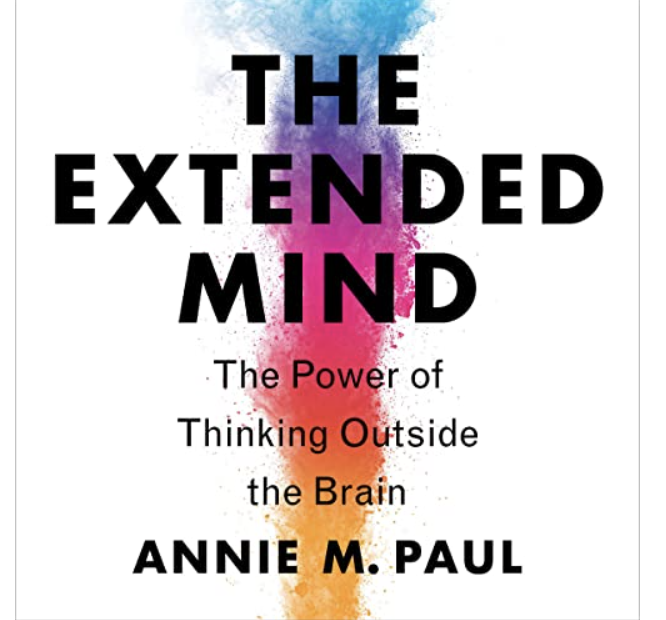by Stephanie Chambers
I recently listened to the audiobook version of “The Extended Mind: The Power of Thinking Outside the Brain” by Annie Murphy Paul. Annie is science journalist and in this book she reviews all the latest physiological and psychological research about the brain, the rest of our bodies and our abilities to think, learn and perform. The information it provides will no doubt help each of us to improve our cognitive ability and our life skills.
Gut reactions
She explains how research is now showing the value of using our intuition or gut reactions. She suggests we keep a journal and to write in it any major decision we make. We should note down how we felt about that decision when we close our eyes and feel our bodily sensations. And then to go back and write in the journal how it turned out – i.e., whether it was a good or bad decision and whether it confirmed how we felt about it. This will help us to become more aware of our inner guidance, so we can use it to aid our decision-making abilities.
Making movements can help us learn better and communicate better
Annie reviews research which shows that students that are allowed to move more are able to retain information better. This can be achieved somewhat through the adoption of standing desks. So the command to “sit still and pay attention” needs to be revised. And the same goes for office workers. We need to use our body’s natural tendency to notice human faces and gestures. Returning to offices rather than open plan offices, for example, will let us be less distracted by people’s faces and conversations and so on. This will thus reduce our cognitive load. Using our hands to make meaningful gestures increases the transfer of information and learning.
We can also enhance our memorization skills by associating what we are memorizing with our movements. That’s why actors can remember their lines. They often remember where they were standing or what they were doing when they said each line.
Using large boards, larger computer screens and physical models or even pieces of paper can help us to think better by making it more tangible.
Our environment affects our ability to think
In the book, Annie mentions research that shows how being in a more natural environment aids our ability to think. Even pot plants can help. When we are not allowed to control how our office is decorated and so on, this also reduces our performance. She also touches on research which shows that architecture influences our ability to think. For example, tall ceilings like in a temple can have a beneficial effect on our cognitive ability.
We can also memorize long lists and so on by associating each item with a particular place.
Other people and groups can positively influence us if we do it right
In the old days, people often copied the masters. Annie refers to research that shows that this wasn’t a bad thing. Our bodies are geared towards copying others and we can use this skill as a short cut for learning life skills more efficiently and effectively.
One of my favorite examples from the book was that doctors that pretend to have the symptoms themselves learn them better and have greater empathy for patients.
If we teach what we have learned, we ourselves integrate that knowledge more deeply. Having students teach each other and co-workers teach each other could really help.
Conclusion
This book touches on much more than I have been able to cover here, so I do recommend that everyone read it. Finding ways to integrate the information it contains will help you to improve cognitive ability such as memory and also help you to perform better at work and at home.

